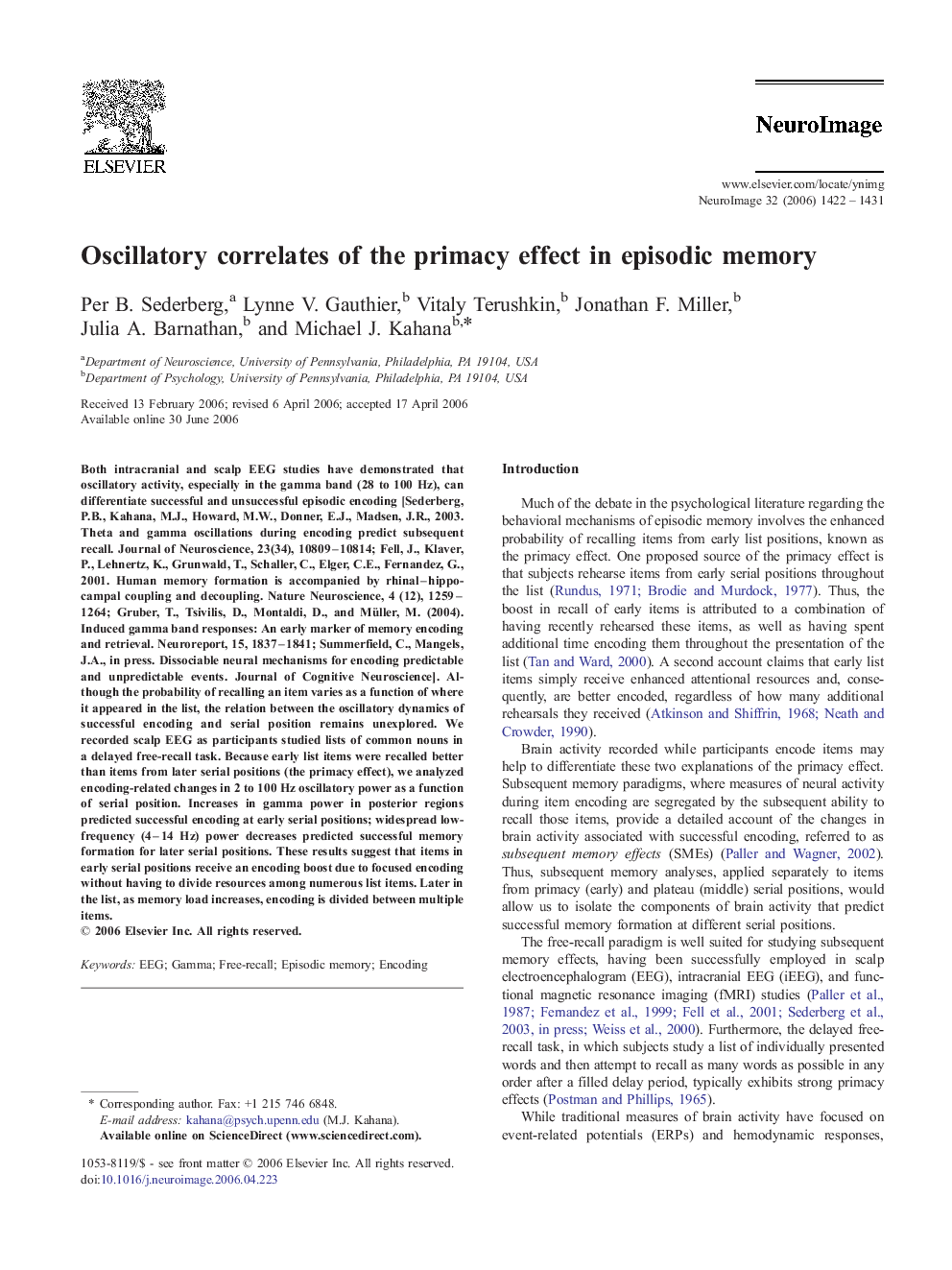| Article ID | Journal | Published Year | Pages | File Type |
|---|---|---|---|---|
| 3074574 | NeuroImage | 2006 | 10 Pages |
Both intracranial and scalp EEG studies have demonstrated that oscillatory activity, especially in the gamma band (28 to 100 Hz), can differentiate successful and unsuccessful episodic encoding [Sederberg, P.B., Kahana, M.J., Howard, M.W., Donner, E.J., Madsen, J.R., 2003. Theta and gamma oscillations during encoding predict subsequent recall. Journal of Neuroscience, 23(34), 10809–10814; Fell, J., Klaver, P., Lehnertz, K., Grunwald, T., Schaller, C., Elger, C.E., Fernandez, G., 2001. Human memory formation is accompanied by rhinal–hippocampal coupling and decoupling. Nature Neuroscience, 4 (12), 1259–1264; Gruber, T., Tsivilis, D., Montaldi, D., and Müller, M. (2004). Induced gamma band responses: An early marker of memory encoding and retrieval. Neuroreport, 15, 1837–1841; Summerfield, C., Mangels, J.A., in press. Dissociable neural mechanisms for encoding predictable and unpredictable events. Journal of Cognitive Neuroscience]. Although the probability of recalling an item varies as a function of where it appeared in the list, the relation between the oscillatory dynamics of successful encoding and serial position remains unexplored. We recorded scalp EEG as participants studied lists of common nouns in a delayed free-recall task. Because early list items were recalled better than items from later serial positions (the primacy effect), we analyzed encoding-related changes in 2 to 100 Hz oscillatory power as a function of serial position. Increases in gamma power in posterior regions predicted successful encoding at early serial positions; widespread low-frequency (4–14 Hz) power decreases predicted successful memory formation for later serial positions. These results suggest that items in early serial positions receive an encoding boost due to focused encoding without having to divide resources among numerous list items. Later in the list, as memory load increases, encoding is divided between multiple items.
